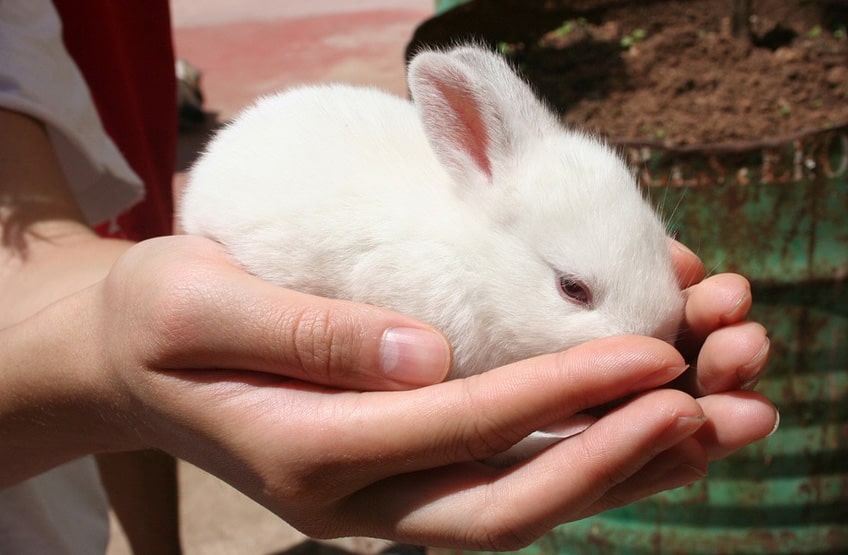
Caring for Baby Bunnies: A Comprehensive Guide
Baby bunnies, also known as kits, are adorable and fragile creatures that require specialized care to thrive. Whether you’ve found orphaned kits or are simply curious about their needs, this comprehensive guide will provide you with all the essential information on how to properly care for baby bunnies.
Assessing the Situation
Before taking any action, it’s crucial to assess the situation and determine if the kits are truly orphaned. Observe the nest from a distance to see if the mother returns. If she doesn’t return within a few hours, it’s likely that the kits are orphaned.
Creating a Safe and Warm Environment
Baby bunnies are highly susceptible to cold and drafts. Provide them with a warm and sheltered environment by placing them in a cardboard box lined with soft materials such as towels or blankets. Ensure the box is large enough for them to move around comfortably but not so large that they get lost.
Feeding Baby Bunnies
Feeding baby bunnies is a critical aspect of their care. They require a special formula specifically designed for rabbits, which can be purchased from pet stores or veterinary clinics. Do not use cow’s milk or other substitutes, as these can cause digestive problems.
Feeding Schedule
Newborn kits should be fed every 2-3 hours, around the clock. As they grow older, the feeding frequency can be gradually reduced. By the time they are 3-4 weeks old, they can be fed 3-4 times a day.
Feeding Technique
To feed a baby bunny, hold it gently in your hand and place the tip of the feeding syringe in its mouth. Slowly push the formula into its mouth, allowing it to swallow at its own pace. Avoid overfeeding, as this can lead to digestive issues.
Stimulating Elimination
Baby bunnies cannot urinate or defecate on their own. After each feeding, gently rub their genital area with a warm, damp cotton ball or tissue to stimulate elimination. This is essential for their health and well-being.
Keeping Baby Bunnies Clean
Baby bunnies are generally clean animals, but they may occasionally need to be cleaned. Use a damp cloth to gently wipe their fur and remove any dirt or debris. Avoid using soap or harsh chemicals, as these can irritate their skin.
Handling Baby Bunnies
Handle baby bunnies with extreme care. Support their bodies with both hands and avoid holding them by their ears or legs. Always wash your hands before and after handling them to prevent the spread of bacteria.
Socialization
Baby bunnies are social animals and require interaction with others. If possible, introduce them to other rabbits or provide them with toys to keep them entertained. Socialization helps them develop healthy social skills and prevents boredom.
Veterinary Care
Regular veterinary checkups are essential for the health of baby bunnies. A veterinarian can assess their overall health, provide vaccinations, and treat any illnesses or injuries. It’s recommended to schedule their first checkup within a few days of finding them.
Weaning
Baby bunnies typically start weaning around 3-4 weeks of age. Gradually reduce the frequency of formula feedings and introduce them to solid foods such as hay, pellets, and fresh vegetables. By 6-8 weeks of age, they should be fully weaned.
Releasing Baby Bunnies
Once baby bunnies are fully weaned and have reached a healthy weight, they can be released back into the wild. Choose a suitable location with plenty of vegetation and water sources. Release them at dusk or dawn when predators are less active.
Additional Tips
- Keep baby bunnies away from other pets, as they may be injured or killed.
- Monitor their weight regularly to ensure they are gaining weight appropriately.
- Provide them with a hiding place where they can feel safe and secure.
- Be patient and gentle with baby bunnies, as they are fragile and easily stressed.
- If you have any concerns about their health or well-being, consult a veterinarian immediately.
Conclusion
Caring for baby bunnies is a rewarding but challenging experience. By following the guidelines outlined in this guide, you can provide them with the necessary care and support to ensure their health and well-being. Remember to handle them with care, provide them with a safe and warm environment, and seek veterinary assistance when needed. With proper care, baby bunnies can thrive and become healthy, happy rabbits.
